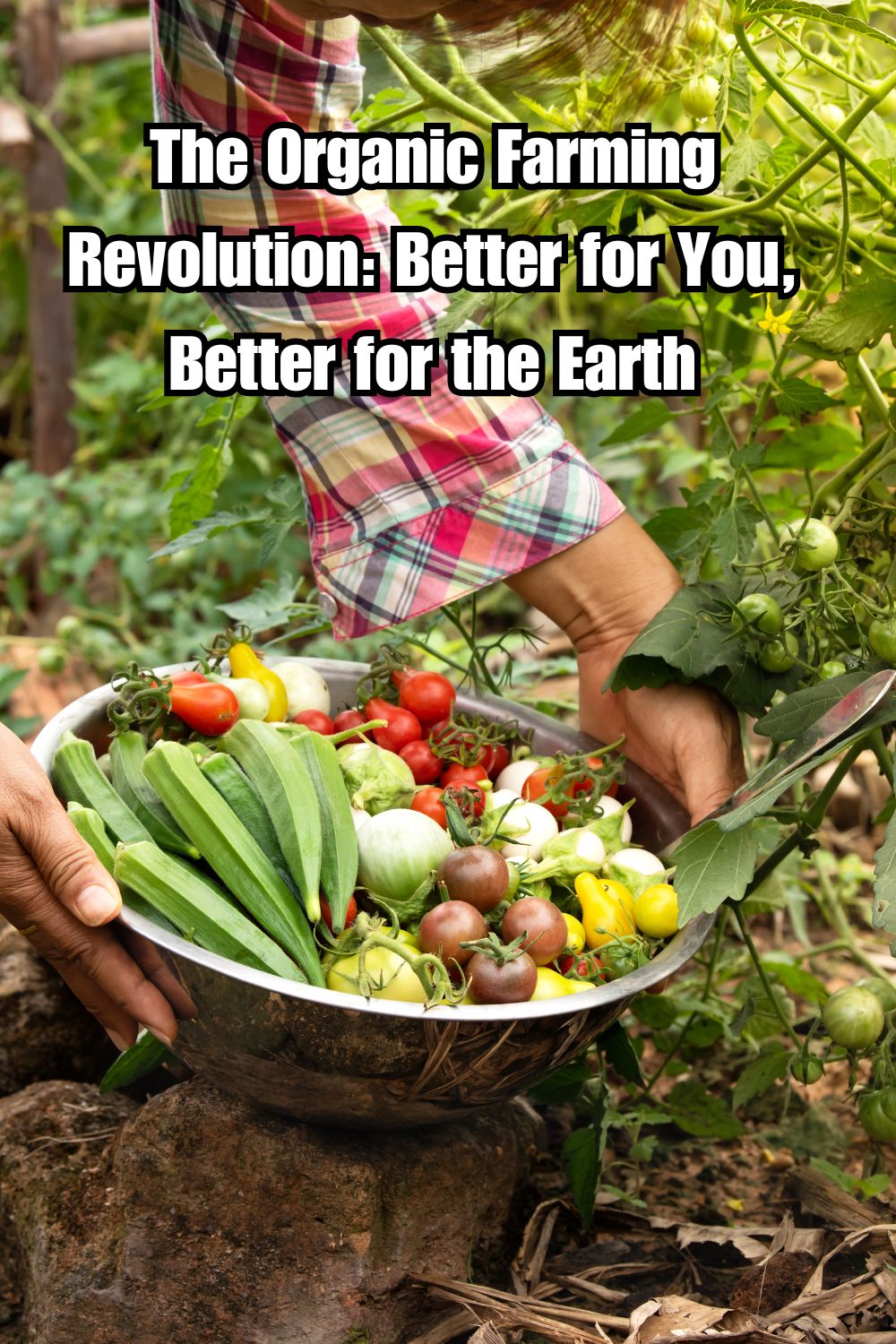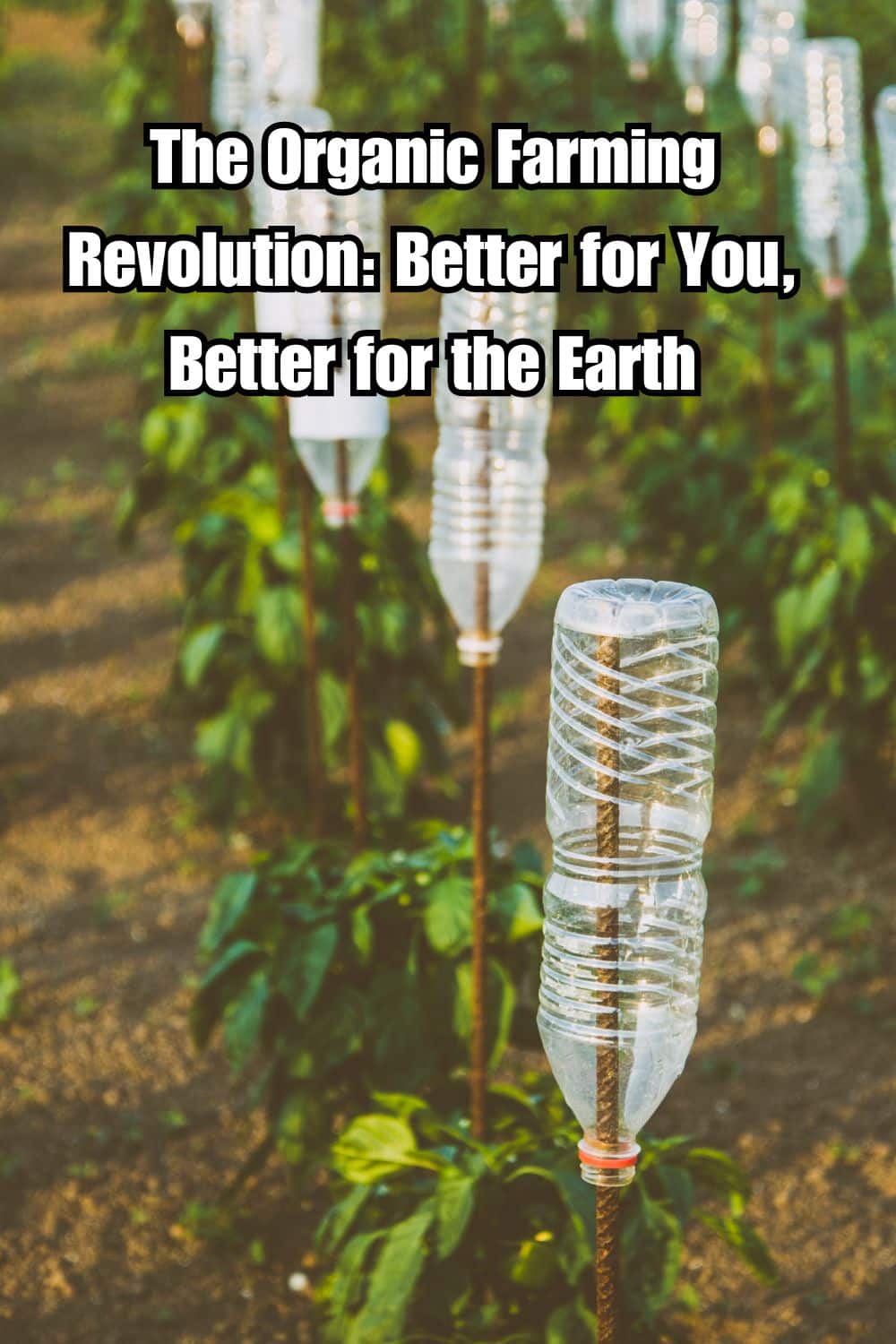Are you looking for ways to start an organic farming revolution? Find out how it’s better for you and better for the Earth!
The Organic Farming Revolution: Better for You, Better for the Earth
Organic farming, once considered a niche practice, has undergone a remarkable transformation into a global agricultural revolution. This transformation is driven by a collective recognition of the drawbacks associated with conventional farming methods and a growing understanding of the numerous benefits offered by organic farming practices.
The Roots of Organic Farming
Organic farming traces its roots back to traditional farming practices that relied on nature’s processes and organic inputs. However, the formalized organic farming movement, as we know it today, gained momentum in the mid-20th century. It emerged as a response to the growing concerns about the detrimental effects of conventional agriculture on the environment, human health, and sustainability.
At its core, organic farming is guided by a set of principles that prioritize sustainability, soil health, and minimal environmental impact. These principles emphasize the avoidance of synthetic chemicals, genetically modified organisms (GMOs), and excessive soil disturbance. Instead, organic farming encourages practices that promote soil fertility, biodiversity, and overall ecosystem health.
Equipment and Machinery Needed
In organic farming, the choice of equipment and machinery is critical to maintaining the principles of sustainability and minimal environmental impact. While organic farming largely relies on natural processes, some essential tools are needed to ensure efficiency and productivity. These may include tractors and tillage equipment for soil preparation, seed drills for planting, and irrigation systems for efficient water management. Your work days will be long, so don’t forget to install a comfy seat in your tractor, and maybe even a John Deere sun shade canopy, to shield yourself from the sun.
Additionally, organic farmers often employ specialized machinery for weed control, composting, and pest management. Importantly, organic farming equipment should be chosen with care to minimize soil compaction, reduce emissions, and avoid the use of synthetic chemicals. The goal is to strike a balance between modern technology and environmentally conscious practices, ensuring that organic farming remains a sustainable and eco-friendly method of agriculture.
Health Benefits of Organic Foods
One of the primary motivations for consumers to choose organic foods is the assurance of pesticide-free produce. Organic farming employs natural pest control methods, thereby significantly reducing the presence of chemical residues on fruits and vegetables. This, in turn, translates to a healthier and safer food choice for consumers.
Organic farming prioritizes soil health through various practices, including crop rotation and composting. These practices contribute to enriching soil with essential nutrients and organic matter. Consequently, the crops grown in such nutrient-rich soil tend to be more nutritious, often containing higher levels of vitamins and antioxidants.
In the realm of organic animal farming, antibiotics are used sparingly or not at all. This responsible approach to antibiotic use minimizes the risk of antibiotic-resistant bacteria entering the food chain. It promotes the health of animals and humans while addressing growing concerns about antibiotic resistance.
Environmental Benefits of Organic Farming
One of the fundamental environmental advantages of organic farming lies in its ability to minimize chemical runoff into nearby waterways. By avoiding the use of synthetic pesticides and fertilizers, organic farms help preserve water quality and protect aquatic ecosystems. This is a significant contribution to safeguarding the health of rivers, lakes, and marine habitats.
Organic farming practices foster more diverse ecosystems within and around the farming areas. These ecosystems often host a wide range of beneficial insects, native plants, and wildlife. This increased biodiversity is not only beneficial for the farm itself, as it can naturally control pests and diseases, but it also supports broader conservation efforts.
Another noteworthy environmental benefit of organic farming is its role in carbon sequestration. Organic farming places a strong emphasis on maintaining healthy soils. Such soils have the capacity to sequester more carbon from the atmosphere. This is a crucial component in mitigating climate change, as it helps reduce greenhouse gas emissions, particularly carbon dioxide (CO2).
Economic Considerations
Organic farming often aligns with local and sustainable economic models. Smaller-scale organic farms can thrive by producing high-quality organic products, fostering a sense of connection between consumers and local food producers. This not only bolsters local economies but also enhances the resilience of communities.
The organic food market has witnessed a consistent and substantial increase in demand. As consumers become more health-conscious and environmentally aware, the organic market provides opportunities for both established and new farmers. The demand for organic products creates a viable market that supports farmers in their transition to organic farming practices.
Challenges and Future Trends
While organic certification is a crucial aspect of the organic farming movement, it can present challenges, especially for small-scale farmers. Streamlining and simplifying certification processes can make organic certification more accessible and equitable for all farmers, regardless of their size.
Organic farming can benefit from emerging technologies that align with its principles. Innovations such as precision agriculture, which allows for more efficient resource use, and organic pest management solutions, which reduce the need for synthetic pesticides, hold promise for enhancing both yield and sustainability in organic farming practices. Integrating these technologies can further drive the evolution of organic farming.
Conclusion
In conclusion, the organic farming revolution is not merely a trend; it represents a fundamental shift in our approach to agriculture. By emphasizing health, environmental sustainability, and local economies, organic farming offers a holistic and forward-thinking path for agriculture. It stands as a testament to the idea that farming practices can be not only productive but also regenerative, benefiting individuals and the Earth alike.


Leave A Reply!